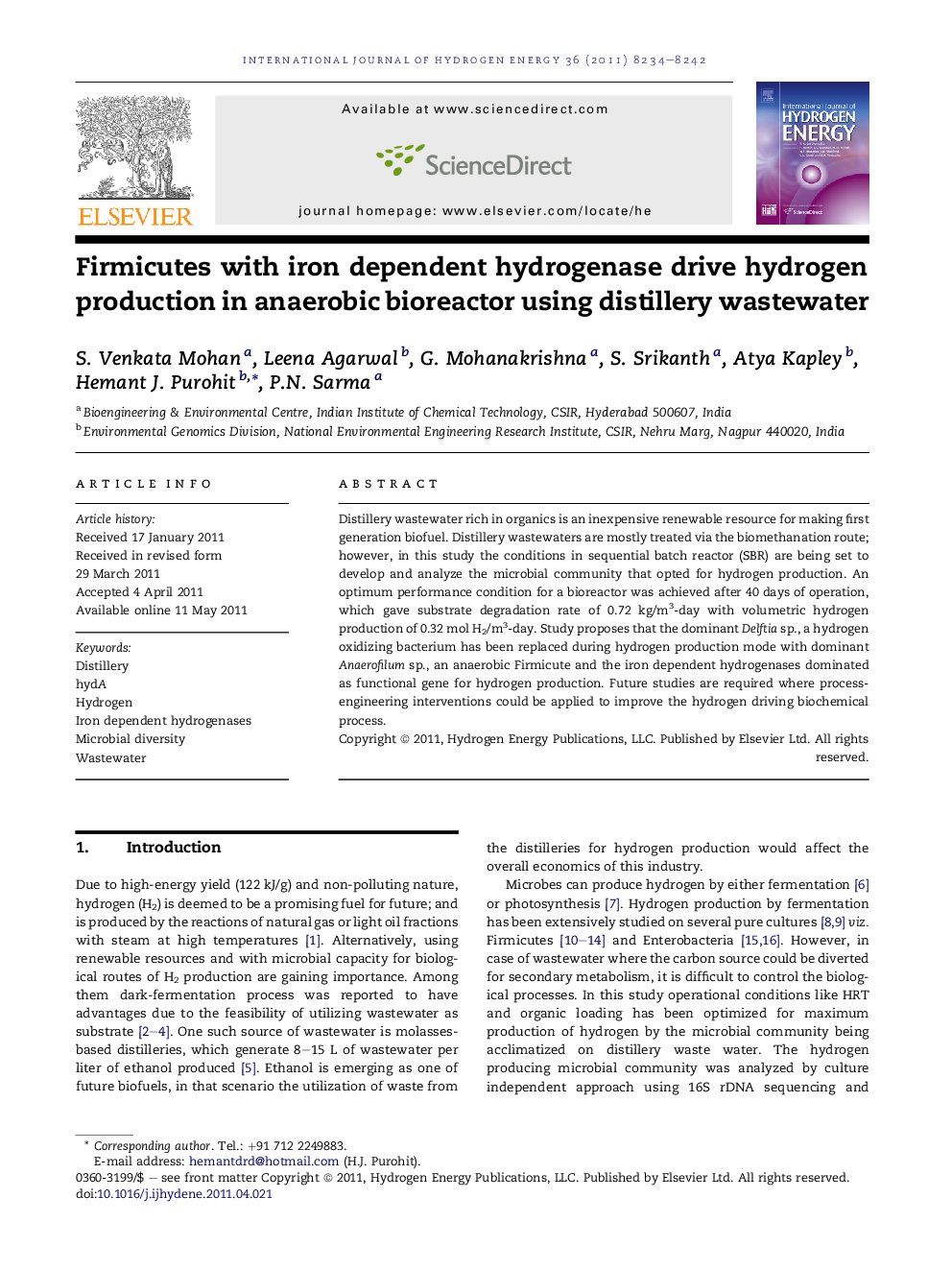| کد مقاله | کد نشریه | سال انتشار | مقاله انگلیسی | نسخه تمام متن |
|---|---|---|---|---|
| 1279136 | 1645388 | 2011 | 9 صفحه PDF | دانلود رایگان |

Distillery wastewater rich in organics is an inexpensive renewable resource for making first generation biofuel. Distillery wastewaters are mostly treated via the biomethanation route; however, in this study the conditions in sequential batch reactor (SBR) are being set to develop and analyze the microbial community that opted for hydrogen production. An optimum performance condition for a bioreactor was achieved after 40 days of operation, which gave substrate degradation rate of 0.72 kg/m3-day with volumetric hydrogen production of 0.32 mol H2/m3-day. Study proposes that the dominant Delftia sp., a hydrogen oxidizing bacterium has been replaced during hydrogen production mode with dominant Anaerofilum sp., an anaerobic Firmicute and the iron dependent hydrogenases dominated as functional gene for hydrogen production. Future studies are required where process-engineering interventions could be applied to improve the hydrogen driving biochemical process.
► This study explores the factors that are responsible for enhancing hydrogen production, which is an important alternative source of energy, thereby making this study very crucial.
Journal: International Journal of Hydrogen Energy - Volume 36, Issue 14, July 2011, Pages 8234–8242